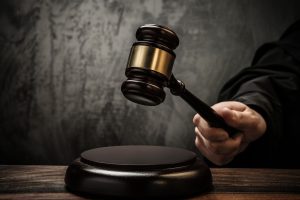Florida Supreme Court Nixes Auto Insurer’s Bid to Pay Less for Car Crash Injuries
 In a win for people seeking fair compensation for Florida car crash injuries, the Florida Supreme Court recently ruled against an auto insurer trying to minimize a claimant’s rightful payout.
In a win for people seeking fair compensation for Florida car crash injuries, the Florida Supreme Court recently ruled against an auto insurer trying to minimize a claimant’s rightful payout.
The case of Ellison v. Willoughby started with a South Florida car accident. A truck driver t-boned another vehicle, causing serious car crash injuries. The plaintiff, a passenger in the car, sued both the truck driver and his wife, who co-owned the truck. (Florida allows vicarious liability lawsuits against vehicle owners under the dangerous instrumentality doctrine.)
The plaintiff also filed a claim with his own auto insurance company for uninsured/underinsured motorist (UM/UIM) coverage. As our Fort Myers car accident lawyers can explain, UM/UIM coverage is paid by your own insurer when the at-fault driver either doesn’t have any insurance or doesn’t have enough insurance to cover your losses. Such coverage isn’t mandatory for Florida auto insurance policies, but most offer it standard.
In this case the plaintiff then successfully pursued a claim for bad faith damages against his UM/UIM carrier. We don’t know the exact details of this particular bad faith claim, but most Florida bad faith insurance claims are initiated when insurers try to evade their obligations to policyholders. Examples include failure to properly investigate a claim or settle reasonable claims in a timely manner for a fair sum. Bad faith damages can be incredibly costly for insurers, but that’s intentional. Insurers have the upper hand in negotiations after a car crash as the insurance contract says that the insured gives up their right to negotiate their claim to the insurance carrier. Heavy penalties for acting in bad faith are intended to serve as a powerful incentive to treat injured claimants and policy holders fairly. In this case, the UM/UIM policy limit was a maximum of $10,000. But the bad faith claim ultimately led to a $4 million settlement between the UM/UIM insurer and the plaintiff. This was all before the trial against the truck driver and his wife/co-owner of the truck.
The negligence trial then proceeded, and plaintiff won a $30 million verdict. The defendant then filed to offset that verdict by $4 million, citing the bad faith insurance settlement. The trial court denied the request, as did Florida’s Second District Court of Appeal upon review. In so doing, the Fla. 2nd DCA certified a two-part question to the Florida Supreme Court:
- Is a settlement made by a UM/UIM insurer to settle a first-party bad-faith insurance claim subject to setoff under F.S. 768.041(2)?
- Can an insurer claim a setoff of such a settlement under F.S. 768.76 by citing it as a collateral source?
The Florida Supreme Court quashed the first part of the question/answer (it hadn’t been properly preserved for appeal). As to the second question, justices answered: No.
Although F.S. 768.76(1) requires plaintiff damage awards be reduced when the plaintiff has received compensation from collateral sources (in order to prevent double recovery), there are a number of exceptions. One of those expressly is an extracontractual payment on a bad faith insurance claim. These aren’t typical insurance “benefits.” The defendant argued they should be considered collateral source “benefits” because they wouldn’t exist but for the underlying insurance contract AND otherwise, the plaintiff would be receiving double recovery.
But the Florida Supreme Court sided with the 2nd DCA in ruling that bad faith damages are not collateral source “benefits” that can be offset the way typical insurance benefits can. They’re not part of the underlying insurance contract between the parties. They’re an extracontractual penalty that exist only by state law. The defendant argued the Court should apply the definition of “benefit” that accomplishes the intention of the statute (i.e., preventing the plaintiff from receiving a windfall), but the Court was not persuaded, saying, “The goal of giving effect to a law’s purpose cannot justify a reading that stretches the language of a statute beyond its breaking point.”
In other words: Insurers of negligent drivers can’t use bad faith insurance awards as collateral source benefits to offset what they owe to injured drivers and passengers.
Complex legal questions like this can arise even in seemingly straightforward car accident cases. That’s why it’s imperative to hire a Fort Myers car crash injuries lawyer with extensive trial experience at the outset.
If you have been injured in Fort Myers, Port Charlotte, Sarasota, Cape Coral, Naples, or Key West, contact Garvin Injury Law at 800.977.7017 for a free initial consultation.
Additional Resources:
Ellison v. Willoughby, Nov. 2, 2023, Florida Supreme Court
More Blog Entries:
5 Must-Know Facts About Florida Personal Injury Law, Dec. 13, 2023, Fort Myers Car Crash Injuries Lawyer Blog





 Florida Personal Injury Lawyer Blog
Florida Personal Injury Lawyer Blog










